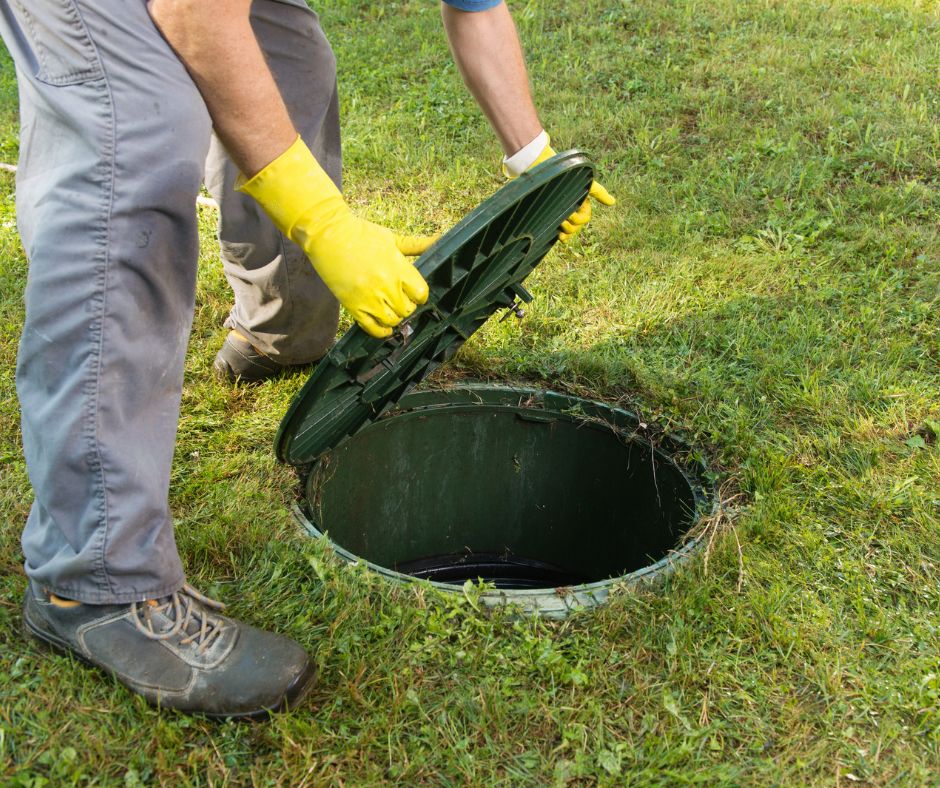
Septic Tank Smells: The Causes and How to Fix Them
Let's face it, nobody wants to smell their septic tank. It's not exactly the aroma of fresh-baked cookies, is it? But if you're experiencing a pungent odor emanating from your yard, chances are your septic system is sending you a message. While the smell might be unpleasant, it's actually a sign that something's not quite right, and ignoring it could lead to bigger (and more expensive) problems down the line.
So, what exactly causes those septic tank smells? And how can you get rid of them?
The Culprits Behind Septic Tank Odors
The culprit behind the stench is usually a breakdown in the delicate balance of your septic system. Think of it like a mini-ecosystem â€" if one part is out of whack, the whole thing can go haywire. Here are some of the most common reasons why you might be smelling your septic tank:
1. A Full Septic Tank
Let's start with the obvious: a full septic tank. When the tank is overflowing, wastewater can back up into the drain field, creating a foul smell. This happens when the tank hasn't been pumped regularly. You should aim to get your tank pumped every 3-5 years, but it can vary depending on the size of your tank and how many people live in your home.
2. A Clogged Drain Field
Your drain field is where the wastewater goes after it leaves the septic tank. This network of underground pipes allows the wastewater to slowly seep into the soil and be naturally filtered. But if this system gets clogged, it can cause backups and lead to a nasty smell.
Common reasons for drain field clogs include:
- Tree roots invading the pipes
- Excessive grease and oil going down the drain (it doesn't break down easily)
- Heavy use of chemicals and cleaning agents
- Improper soil conditions
3. A Broken Septic Tank Lid
A broken or cracked septic tank lid can be a major source of odors. Imagine a lid that's slightly ajar, letting those potent smells waft out into your yard. This can happen over time due to shifting soil, tree roots, or simply age.
4. Issues with the Septic Tank Vent
Every septic tank has a vent pipe that releases gases from the tank into the atmosphere. This prevents pressure buildup inside the tank. If the vent pipe is clogged or damaged, gases can back up, creating a foul smell.
5. Problems with Your Plumbing
Sometimes, the source of the smell isn't the septic tank itself, but a leak or blockage in your plumbing system. A leaky toilet or a clogged pipe can lead to wastewater backing up and emitting an unpleasant odor. If the smell seems to be coming from a specific drain or fixture, it's likely a plumbing issue.
Addressing Septic Tank Smells: A Fix-It Guide
So, you've identified the source of the septic tank smell. What now? Don't panic! Here's a step-by-step guide to help you tackle those odors:
1. Call in the Professionals for Septic Tank Pumping and Maintenance
If the smell is due to a full tank, it's time to call a professional septic service. They'll pump out the tank, removing the sludge and scum that have accumulated over time. While they're there, they can also inspect your tank for any other issues and advise you on proper maintenance.
2. Tackle Clogged Drain Fields
A clogged drain field can be tricky to handle. If you suspect this is the problem, call a septic system professional to assess the situation. They may need to use specialized equipment to clear the clog or, in severe cases, they might need to install a new drain field.
3. Get a Septic Tank Lid Repair
A broken septic tank lid is a relatively easy fix. A professional can replace the lid, ensuring a tight seal to prevent odors from escaping.
4. Clear the Septic Tank Vent
If your septic tank vent is clogged, it can be easily cleared by a professional. They'll use specialized tools to remove any obstructions and ensure proper airflow.
5. Address Plumbing Problems
For plumbing issues, a licensed plumber can fix any leaks, clear clogged pipes, and ensure your plumbing system is operating efficiently. This will prevent wastewater backups and associated odors.
Preventing Septic Tank Smells
Once you've addressed the current smell, you'll want to take steps to prevent it from happening again. Here are some tips:
- Schedule Regular Pumping: Get your tank pumped every 3-5 years, or more frequently if you have a large family or use a lot of water.
- Avoid Putting Harmful Substances Down the Drain: Avoid flushing things like grease, oil, and medications down the drain. These substances can clog your system and cause odors.
- Use Septic-Safe Products: Opt for septic-safe cleaners and detergents. Traditional household cleaning products can harm the beneficial bacteria in your septic system.
- Minimize Water Use: Taking shorter showers, using less water in your laundry, and fixing leaky faucets can reduce the amount of wastewater going to your septic system, helping it operate more efficiently.
- Keep the Drain Field Area Clear: Don't plant trees or shrubs directly over your drain field. Their roots can damage the pipes and cause clogs.
- Maintain Your Plumbing: Regularly inspect your plumbing for leaks and ensure that pipes are draining properly.
- Inspect Your Septic Tank Regularly: Check your tank periodically for cracks or other damage. If you see any issues, call a professional for repairs.
Septic tank smells can be unpleasant, but by understanding the causes and taking preventative measures, you can keep your yard smelling fresh and your septic system functioning properly. Remember, regular maintenance is key to a healthy septic system and a pleasant-smelling yard!
0 comments:
Post a Comment
Note: Only a member of this blog may post a comment.